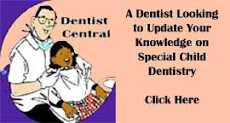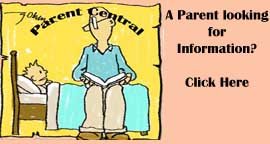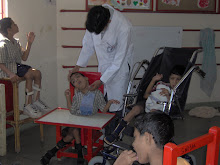
Every hospital and clinic in the world has a form which requires the recording of the patent's medical history. While no one doubts the importance of this step, it is not the most pleasant of tasks. In children where parents are either unaware or unwilling to share medical history this step is often even more unpleasant. Many a practitioner gives the excuse of a "busy schedule" to avoid having to take this history. Fortunately, or rather unfortunately, the likelihood of encountering a child with a serious medical problem or drug allergy is rare thereby making the the chance of a complication rare. But the question is do we really want to take that chance?
Rule 1: Don't be afraid to ask - Very often parents are not ashamed to answer questions regarding their child's medical health, especially when they are aware of the risk involved in treatment. They may be more defensive about questions regarding mental health, but here again the right phraseology can make all the difference. The difference between "does your child have a mental problem?" and "how is your child coping with school?" can be the difference between your obtaining a history or not.
Rule 2: Take the history yourself - Many clinics and hospitals rely on forms filled out by parents or let the history be taken by the dental assistant, checking the recorded facts only takes a few minutes, but surprisingly you will find that they either forgot to mention something or they reinforced something that you almost missed when you read the history the first time.
Rule 3: Do not guess the medication the child is on - while it may be easy to assume that the child was given an antibiotic and analgesic for pain medications for other diseases are a lot harder to guess. Even if you are sure about the drug of choice or the most frequently prescribed medication it doesn't hurt to look at the prescription. If the child is suffering from a serious problem, such as a cardiac condition the parents will often carry the prescription with them, if however the medication was stopped, as it often is in cases of childhood epilepsy or asthma, parents do not remember when exactly the ,medications were stopped or what exactly was the drug given. Here the last prescription can be a useful tool to your diagnosis.
Rule 4: If the child is on medication make sure the medication is readily available - If the child is currently on medication it is essential to confirm that the medication was taken before the visit. In cases of asthma, do not start treatment unless the inhaler is available. When it comes to antibiotic prophylaxis it is better to administer the prophylaxis yourself. The prophylactic dose for a 20 Kg child is 1000mg, which is 20 ml of syrup. Most patients find this much syrup unpleasant, and almost all parents will be convinced that you are overdosing their child with antibiotics.
Rule 5: Tell the parents to call their pediatrician to confirm your treatment plan - Regardless of your expertise and specialization, many parents are more comfortable with the opinion of the "doctor" over that of the "dentist". Just the fact that you are confident enough to have your diagnosis "tested" by the pediatrician can be very reassuring for the parent.
Rule 6: When in doubt : REFER - Heroic and noble as the field of special care dentistry is, it is not a substitute for the opinion of a physician or a pediatrician. If you are in doubt as to the suitability of dental treatment - refer the child for a medical opinion.






